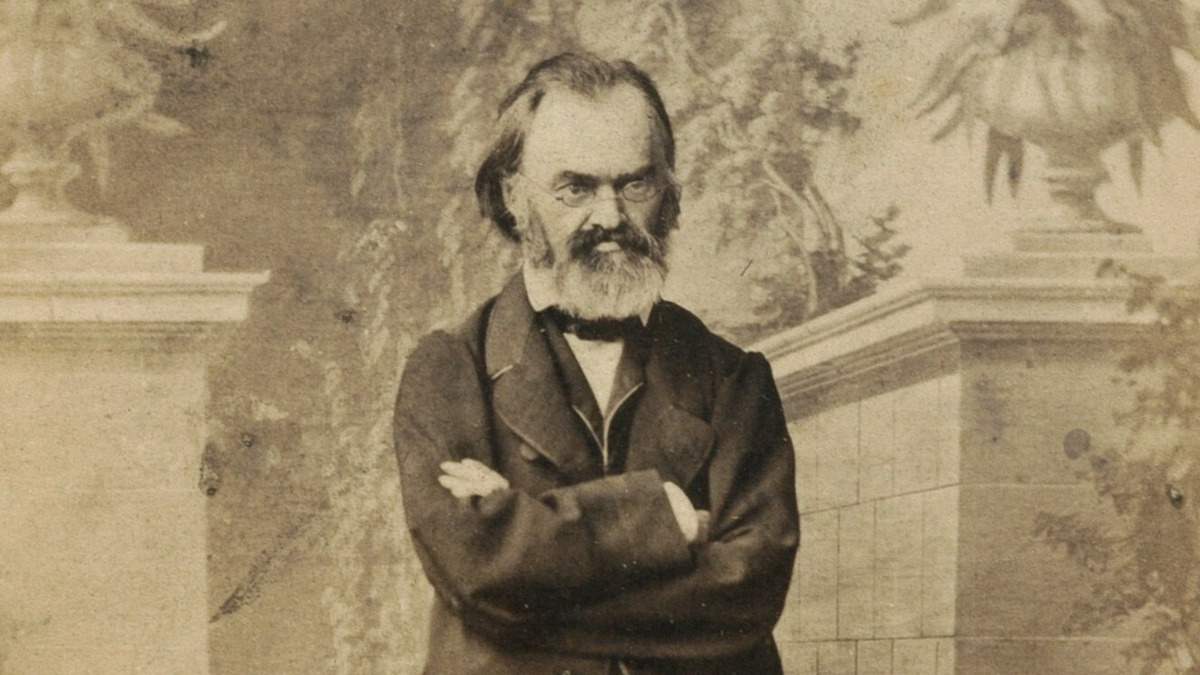Polish social thinker and economist: Who is August Cieszkowski?
According to Cieszkowski, the history of humanity is in increasing solidarity and closeness to God in accordance with the Hegelian dialectic understanding.

(1814-1894) He is known for his works in line with the Hegelian historical approach. August Cieszkowski was born in Sucha in 1814. He died in Wierzenica in 1894. Coming from a noble family, Cieszkowski graduated from Heidelberg University's Faculty of Philosophy in 1838. Cieszkowski, who lived for a long time in the Russian part of Poland and France, settled in his estate near Posen in Poland in 1847. He founded the Polish Union, the national organization of Prussian Poland. Between 1845 and 1861 he was in the Prussian Assembly and was chairman of the Polish Deputies' Group. August Cieszkowski revealed his philosophy of history, which was influenced by Hegel, especially in his work "Our Father". In this work, August Cieszkowski aims to reconcile the last part of the Gospel with natural law and seeks a relationship between historical development and the predicted teachings of Jesus in accordance with the Hegelian dialectical understanding.
Count August Dołęga Cieszkowski (12 September 1814 – 12 March 1894) was a Polish philosopher, economist, and social and political activist. His Hegelian philosophy influenced the young Karl Marx and action theorists.
According to Cieszkowski, the history of humanity is in increasing solidarity and closeness to God in accordance with the Hegelian dialectic understanding. August Cieszkowski, historical, physical existence or pre-Christian period. He divides it into three: the period of reflection, which will end with the coming of the Holy Spirit, and the period of solidarity and brotherhood when the Kingdom of God will be realized on earth. Arguing that the last period is being prepared with a gradual process of change, August Cieszkowski believes that Slavic nations and especially Poles have great duties in this regard.
According to Cieszkowski, in order to accelerate the realization of the Kingdom of God on earth, social and economic reforms must be based on three fundamental principles: Assurance to everyone in what they have, can be, and should be. When the period of solidarity and brotherhood begins, religious beliefs will dominate social life. In this phase, when the nations are free and independent in government, all nations will be united under an international church. This international church will be under the rule of an international government. According to Cieszkowski, the economic organization in this period would be based on the principle of international economic unity.
German philosophers such as Hegel and Fichte; Influenced by Utopian Socialists such as Saint-Simon and Fourier, Cieszkowski proposed limited measures on social reforms and advocated the principle of government support for economic and social reforms. Emphasizing the necessity of state aid to credit cooperatives in agriculture, August Cieszkowski argued that the state should compete with private enterprises in forestry, mining, and rail transport to protect the interests of society. Cieszkowski, who developed a new monetary system in his most important book on economics, "On Credit and Circulation", defined credit as a tool that transforms fixed and invested capital into working capital.
----------------------------------------------
THE ALTERNATIVE OF SECULARIZATION? ON THE POLITICAL THEOLOGY OF AUGUST CIESZKOWSKI
https://deliberatio.eu/en/analyses/philosophy/the-alternative-of-secularization-on-the-political-theology-of-august-cieszkowski
